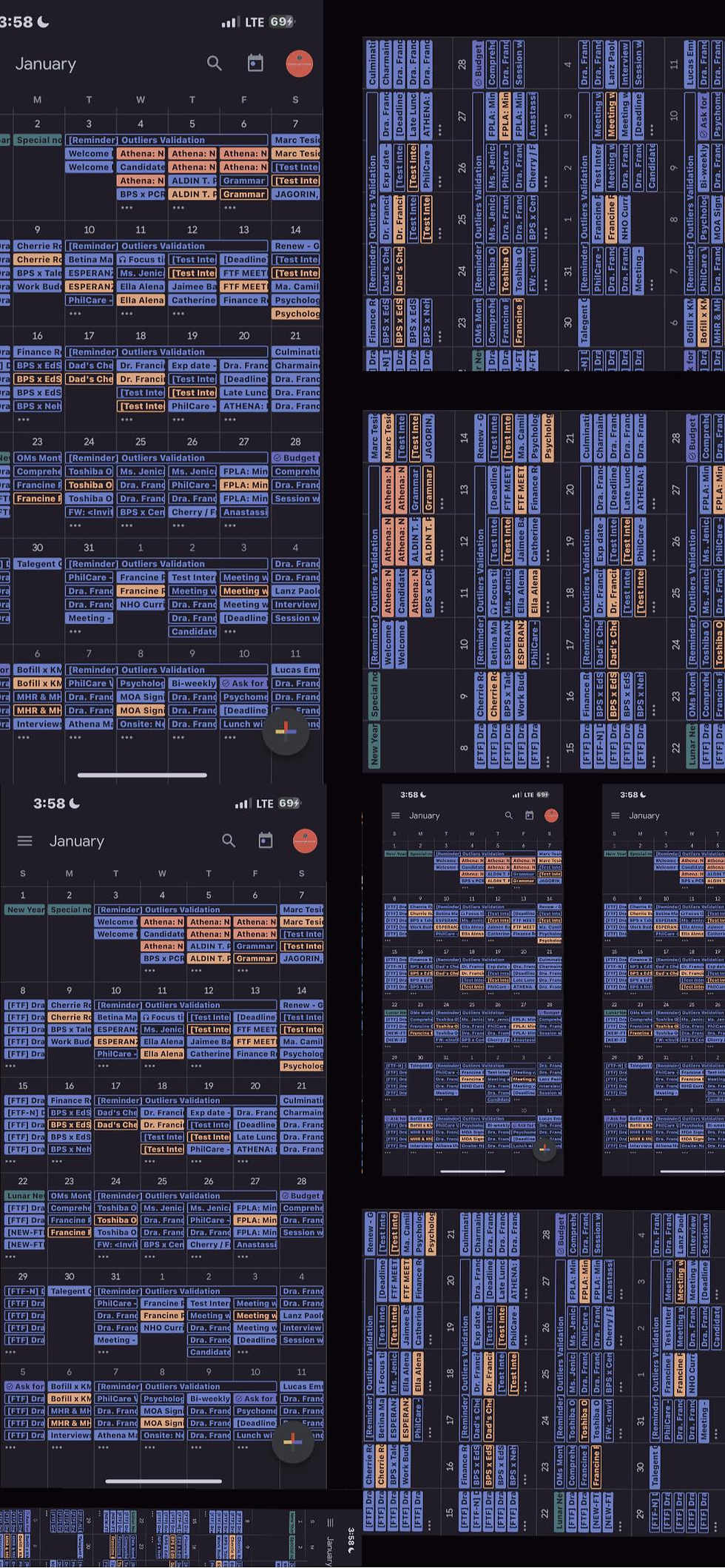"Portable Mental Health Care?"
- Valerie Pronuevo
- Nov 17, 2021
- 4 min read
Updated: Apr 4, 2022
It cannot be underestimated how important mental health care is. In an article written by Newland (2014), the author stressed out how many people suffer from mental health disorders and how few of them receive the necessary intervention. Although not much attention is given in the field, mental health is vital to one’s overall health and well-being. According to Brennan (2021), mental and physical health are positively related. This means that improvements in one’s mental health result in improved physical health, and the other way around. This highlights how vital it is for everyone to take good care of their mental health. However, are you not wondering if mental health care is still the same as before?
Most of us have this prototype of mental health care in mind: comfortable-looking clinics where people receive their therapy. When you hear the word psychotherapy, does it not remind you of clinics and psychologists on a white coat as is usually shown in films? This is the common picture of mental health care among individuals, but with the onset of technology, mental health care is transitioning to a more portable platform. By portable, it means that mental health care is now available on phones through mobile applications. Mental health is being transferred to a new platform that most of us use: mobile phones.
In September of 2020, Kajitani, et al. developed a mental health application for their study. The application they developed features self-help and referral functions. Their goal was to test the short-term effect of a mobile mental health application on students’ mental health (Kajitani, 2020). The result of their two-week-long study was that using the mental health application they developed improved the mental health of the students (Kajitani, et al., 2021). Many similar studies have been performed and all of them show positive results. In one systematic review of 14 studies regarding the effectiveness of mental health mobile applications, it was found that mobile applications which aim to improve the mental health of the public are indeed effective in doing so (Hwang, et al., 2021). Similarly, Leech et al. (2021) found through their review that there is a promising potential with the use of mobile applications to improve mental health.
Especially with the COVID-19 pandemic, most of our activities are regulated online. Thankfully, the current innovations of our time paved the way for a new platform for mental health care. As of this moment, the transition to mobile mental health care appears to be a reassuring field. Although limited, the data at hand provides hope for effective and efficient portable mental healthcare. To date, the field is still young and more studies are needed to fully learn about its benefits and risks. Thus far, among the questions raised about these mental health mobile applications involves uncertainty about their effectiveness, privacy concerns, and even the ethicality of such applications (Bauer, et al., 2020). With more research, these questions and uncertainties can better be answered and solved.
If this field will continue to grow, we can expect it to bring many possibilities in the mental health field. We can imagine psychotherapy and psychological assessment provided through the functionalities of mobile applications. We can envision people with self-help applications on their phones to improve and monitor their mental health. Mobile phones will no longer be used only to play games, watch videos, and communicate with people; phones will have a bigger purpose, a more important function. Our devices will contain a layer of ourselves deeper than those thin and lightweight gadgets. Although a lot more possibilities await as we explore this field, none of them have been guaranteed. After all, mental healthcare is pretty complicated.
While the field is still young, caution is much needed and asked both from the practitioners and the public. Our mental health is also as significant as any other issues (e.g physical health etc.). Hence, if we are very careful when it comes to what we do with our bodies, the same care must be given to our mental health. Although the results show great promise, everyone must be careful enough when utilizing applications currently available in the market. Similarly, mental health professionals should also be careful when utilizing mental health applications and they must provide their patients with enough information regarding the known risks and benefits of such.
References
Bauer, M., Glenn, T., Geddes, J., Gitlin, M., Grof, P., Kessing, L.V., Monteith, S., Faurholt‑Jepsen, M., Severus, E., & Whybrow, P. C. (2020). Smartphones in mental health: a critical review of background issues, current status and future concerns. International Journal of Bipolar Disorders, 8(2), 1-19. https://doi.org/10.1186/s40345-019-0164-x
Brennan, D. (2021, March 29). How does mental health affect physical health. https://www.webmd.com/mental-health/how-does-mental-health-affect-physical-health
Hwang, W. J., Ha, J. S., Kim, M. J. (2021). Research trends on mobile mental health application for general population: A scoping review. International Journal of Environmental Research and Public Health, 18, 2459. https:// doi.org/10.3390/ijerph18052459
Kajitani, K., Higashijima, I., Kaneko, K., Matsushita, T., Fukumori, H., Kim, D. (2020). Short-term effect of a smartphone application on the mental health of university students: A pilot study using a user-centered design self-monitoring application for mental health. PLoS ONE, 15(9), 1-18. https://doi.org/10.1371/journal.pone.0239592
Leech, T., Dorstyn, D., Taylor, A., & Li, W. (2021). Mental health apps for adolescents and young adults: A systematic review of randomised controlled trials. Children and Youth Services Review, 127. https://doi.org/10.1016/j.childyouth.2021.106073
Newland, J. (2014). The importance of mental health. The Nurse Practitioner, 39(10), 8. https://doi.org/10.1097/01.NPR.0000453648.45942.d0




留言